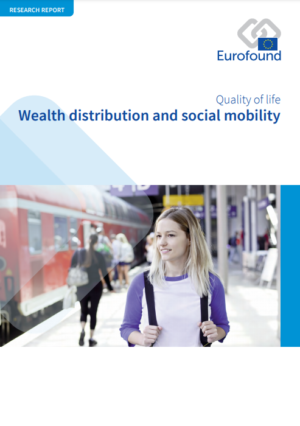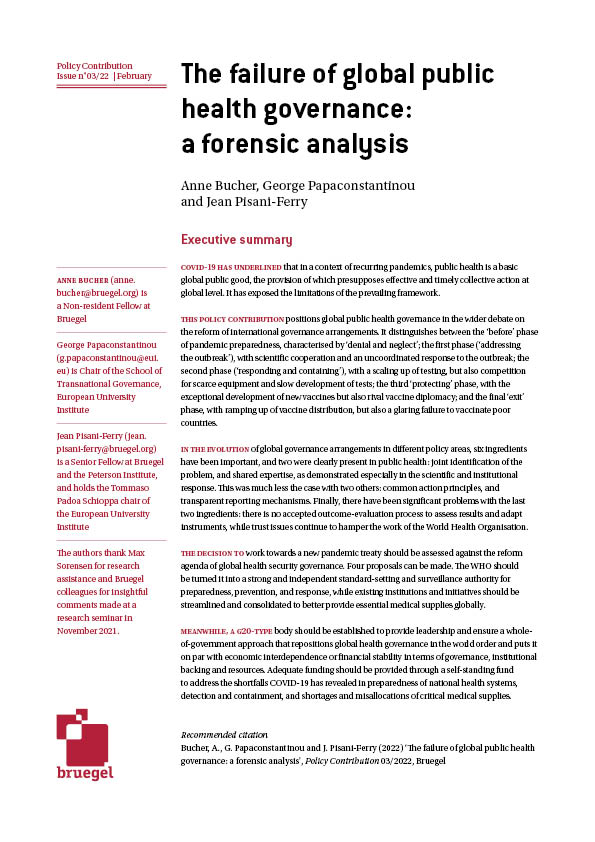External Publication
Wealth distribution and social mobility
This report explores the distribution of household wealth in the EU Member States and analyses the role of wealth in social mobility.
This report was prepared for the European Foundation for the Improvement of Living and Working Conditions. The report is available on Eurofound’s website at Wealth distribution and social mobility | Eurofound (europa.eu). Copyright remains with Eurofound at all times.
Abstract
This report explores the distribution of household wealth in the EU Member States and analyses the role of wealth in social mobility. Using data from three datasets (the Household Finance and Consumption Survey, the Survey of Health, Ageing and Retirement in Europe and the Luxembourg Wealth Study), it focuses on wealth per household member. Wealth composition is compared across social groups and countries, and the role of housing assets in wealth distribution and negative wealth is assessed. The findings show that parental background, including parental wealth, has an impact on educational and wealth mobility. In order to promote equality of opportunities in terms of access to education and housing, the impact of wealth inequalities, including differences in parental wealth, should be counterbalanced. The report also suggests that regularising wealth declaration in the EU could be a way of promoting social justice by minimising hidden wealth and combating tax evasion.
Key findings
- Wealth, or the lack of it, has major implications for a person’s opportunities in life. In the EU, there is an enormous gap in wealth: the gross assets of those in the top wealth quintile in the 21 EU Member States examined are 60 times larger compared to those in the bottom wealth quintile.
- For the wealthiest in the EU, substantial incomes are generated through self-employed business, financial assets and real estate. The least wealthy – the 4% with negative wealth – tend to be people who are young, income- and asset-poor, unemployed and renting their accommodation, and who draw on private loans and credit lines. Less than one-fifth of people with negative net wealth are homeowners with mortgages.
- Inclusive growth, with equal opportunities as a core principle, is at the centre of the EU’s growth strategy and the European Pillar of Social Rights. To counterbalance wealth differences, public policies for equal opportunities will be required to secure good living conditions during childhood, ensure minimum educational attainment and promote access to higher education.
- To support inclusive growth and equal opportunities, it is critical that housing policies support fair and efficient ways to increase housing supply in cities, improve public transport and incentivise teleworking to reduce the demand on overcrowded city centres. To achieve this, a balance between supporting homeownership and providing public housing will be essential.
- The introduction of a compulsory wealth declaration would help to clamp down on hidden wealth and hidden income, and go some way towards addressing wealth inequalities. Promoting financial literacy could also foster greater asset diversification to the benefit of the less well-off.
This report presents the results of research conducted largely prior to the outbreak of COVID-19 in Europe in February 2020. For this reason, the results do not fully take account of the outbreak.










